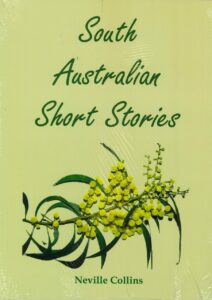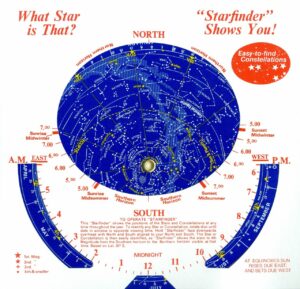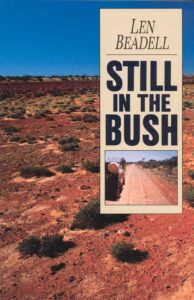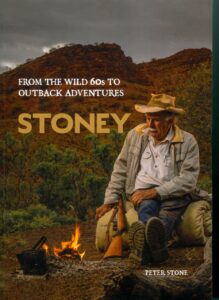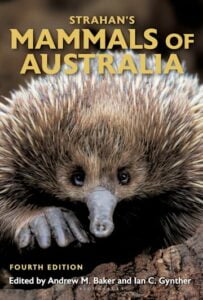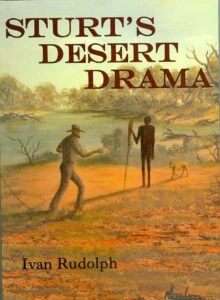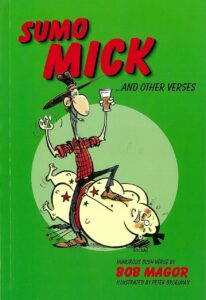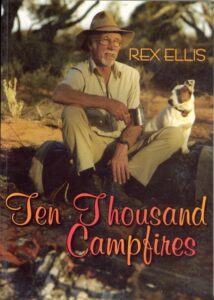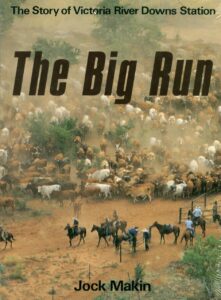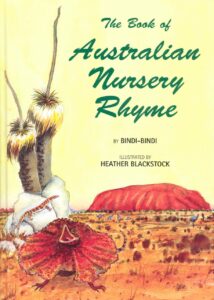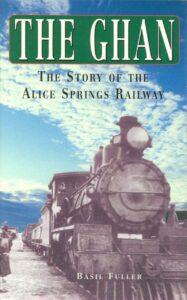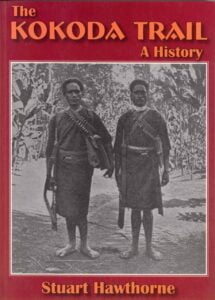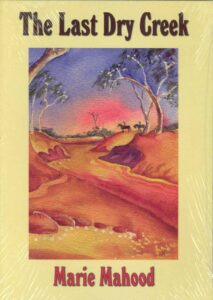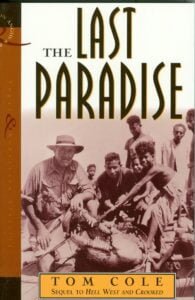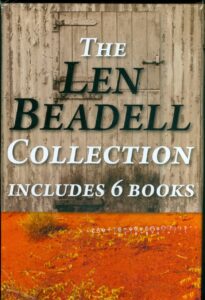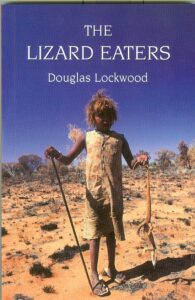Shop
The story of the Nullabor Nymph, a blind marsupial mole, murders, an eccentric professor, a little-known explorer, and whether an ostrich riding bushranger ever terrorised the Coorong are just a few of the topics included in this collection of South Australian short stories.
Numerous contemporary and historical photographs and complement the text.
Read MoreA star finder (also known as a planisphere) is a circular map with an overlay that turns to show – through an opening in the overlay – the region of the sky that is visible for a specified time, date and location. It is an incredibly useful tool for orienting yourself in the night sky, for identifying constellations, and for planning your stargazing night.
Read MoreLen Beadell accepted the challenge of building roads and undertook an enormous survey programme in order to prepare a test launching area in one of the most isolated parts of the world which came known as the Woomera Rocket Range. This is an excellent read and includes hilarious stories of true Australian bush characters.
Soft-cover
Read MorePeter John Stone (Stoney) Born on 16 February 1944 in Brighton South Australia, experienced periods of family turmoil during his early school days along with falling victim to the dreaded Polio Disease when eight years old. These two life checks could have contributed to his rebellious attitude towards suburban schooling ending in poor results. Leaving…
Read MoreFully updated and with completely reworked text and images, this is the Fourth Edition of the acclaimed The Mammals of Australia.
Strahan’s Mammals of Australia is the best book available on the subject, being the most definitive, comprehensive and up-to-date. It provides a written account of every species of native mammal known to have existed in Australia since European settlement, with 403 species covered in total. It is beautifully illustrated with more than 1,500 colour photographs, while each species account includes a detailed description of the animal and its behaviour. Species covered range from marsupials, monotremes and rodents through to bats, seals and whales.
The new edition sees the addition of 14 newly described species and includes all the latest taxonomic treatments and many changes to names (common and scientific) and other features that have been accepted in the 14 years that have passed since the publication of the Third Edition.
Read More1844 – A motley party under Charles Sturt sets out to penetrate Australia’s mysterious Centre. The hour is desperate: South Australia is sliding into bankruptcy and the colonials look to Sturt as the “Father of Australian Exploration” to find rich lands to rescue the economy. The massive, unwieldy expedition plods up the Murray, dragging along…
Read MoreAs a grounding to become a bush poet Bob Magor spent the first ten years of his working life disrobing sheep. He then graduated to staring up the back end of a herd of dairy cows twice a day for seventeen years. This is a probable explanation for his strange outlook on life! As well as paying the bills this lifestyle also provided him with a wealth of rural experiences to draw upon for writing bush verse.
Inheriting a warped sense of humour from his father, Bob has always been a keen studier of his fellow man and delights in recounting situations that only a fellow farmer could get involved in.
since the release of his first book of verse in late 1990 Bob has found himself in demand to perform at festivals around the country and has collected an ever increasing band of devoted fans.
Read More
Another of Rex Ellis’s books, written in good humour. Every camp while travelling in the remote Australian outback involves a campfire and this book includes stories gathered along the way.
Read MoreThis engrossing book tells the rich and fascinating story of the Victoria River Downs Station in the Northern Territory, from the early white explorers who battled the vastness of the environment on their gruelling expeditions inland in search of good pastoral country, to the present day.
The Big Run captures the spirit of what was once the world’s largest cattle run and this updated edition incorporates the recent history of “The Big Run” under the management of Janet Holmes á Court’s Heytesbury Pastoral Group.
Read MoreA charming nursery rhyme book containing many Australian characters from the bush. Wonderfully written by Bindi-Bindi and illustrated by Heather Blackstock, this lovely book will keep children entertained for hours.
Hard-cover
Read MoreTo write the history of the Ghan, Basil Fuller made the journey in a brake van from Port Augusta to the Alice, speaking with old-timers who remember those epic days. Fascinating glimpses of the past – tales of itinerant doctors, cameleers, and navvies – are interwoven with a first-hand account of this vital train service that has become an Australian legend.
Read MoreThe Kokoda Trail is a remote jungle track in the old Australian Territory of Papua where Aussie Diggers and the Fuzzy Wuzzy Angels battled desperately against Japanese invaders to save Australia in 1942. The Kokoda Trail campaign, fought out over six months and two day on a narrow front in appalling conditions, has become an honoured part of our Australian heritage. But there is much more to the Kokoda Trail than this. Historian and adventurer Stuart Hawthorne looks back 130 years over the Trail’s captivating past.
Read MoreTom Cole hunted crocodiles and buffalo, was a horse-breaker, brumby runner and drover, owned and managed cattle stations and coffee plantation.
The Last Paradise is the sequel to Tom Cole’s bestselling autobiography Hell West and Crooked and recounts his story of thirty years in New Guinea amongst ‘crocodiles, cannibals and coffee’.
Operating as the first professional crocodile shooter in New Guinea, Tom Cole risked life and limb hunting from frail canoes in wild and sometimes unexplored country, working with everyone from cannibals to missionaries to government officials, and the larger-than-life characters still drifting around the Pacific after the war.
Read MoreLen Beadell is regarded as the ‘last true Australian explorer’ for opening up over 2.5 million square kilometres of rugged Australian outback.
This is a beautiful box-set celebrating Len’s successful publications and contains six special edition titles – Too Long In The Bush, End Of An Era, Bush Bashers, Still In The Bush, Blast The Bush and Beating About The Bush.
In 1957, officers from the Welfare Branch of Northern Territory Administration began Patrolling the Gibson and Great Sandy Deserts. Here they found the Pintubi people, who had never been in touch with white civilisation. In 1963 the Melbourne Herald’s correspondent, Douglas Lockwood, was invited to join a patrol into the Gibson Desert to point about…
Read More